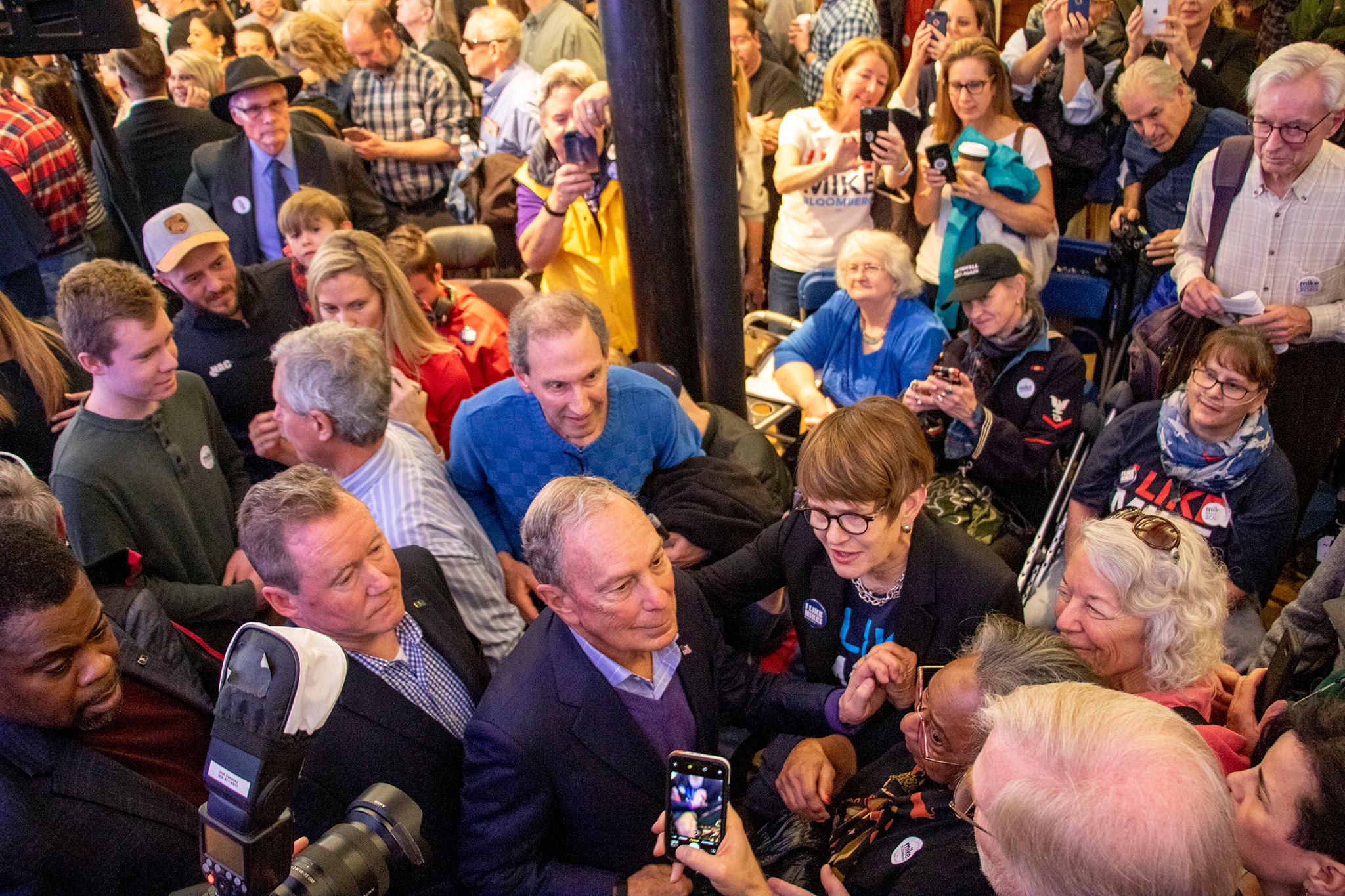
Spending millions of dollars almost every day to win a nomination is a strategy.
But as voters and candidates saw on Super Tuesday, it’s not necessarily a good one.
To Seth Masket, the director of the Center of American Politics at the University of Denver, it was no surprise.
“There’s a lot of people who think that simply money buys victory and if you have enough money, you can do anything in politics,” Masket said. “It’s just not true. It doesn’t mean money is irrelevant but having money is just not enough.”
Michael Bloomberg outspent every Democratic candidate in Colorado with $7.8 million on TV ads. Bloomberg spent about $185 million in all on the Super Tuesday states, according to tracking firm Advertising Analytics.
However, he only came in third in the Centennial State, behind winner Bernie Sanders and runner-up Joe Biden. The story went the same in every other Super Tuesday state (Bloomberg’s one win was in American Samoa). The former NYC mayor ended up dropping out of the race Wednesday morning and endorsing Biden.
Sanders is in second place for spending in Colorado with $665,794. Biden didn’t spend anything here.
Colorado Democratic Nomination Results
Anand Sokhey, an associate professor of political science at the University of Colorado Boulder, said that although Bloomberg dropped out, he still made an impact in the race.
“If Bloomberg’s greater goal was to shape this race more broadly, then it may be a little hasty to say it was a complete waste of money,” Sokhey.
When announcing his run in November, Bloomberg said he was doing it to defeat President Donald Trump. When he dropped out of the race on Wednesday, he said he was leaving for the same reason. Sokey argued that if Bloomberg used his influence to promote a more moderate candidate rather than a progressive one, then he succeeded.
“The way this has played out, consolidation of the field over the last couple of weeks has pushed forward a moderate candidate to challenge Sanders for the nomination and then potentially to challenge Trump,” Sokhey said.
Super Tuesday’s moderate field shrunk dramatically not long before the big day. Minnesota Sen. Amy Klobuchar dropped out on Monday after Pete Buttigieg, former mayor of South Bend, Indiana, suspended his on Sunday. They both endorsed Biden.
Money was also no silver bullet for Massachusetts Sen. Elizabeth Warren. She had nearly doubled her ad spending in Colorado in the week ahead of Super Tuesday to $619,759, but still ended up coming in fourth. The only other Super Tuesday state Warren spent more in was Texas, at $789,566.
Sohkey said Warren struggled in Colorado and nationwide because she couldn’t distance herself from Sanders.
“[She] appeared to be in the same lane as Bernie and I think that’s a tough spot to run in,” Sohkey said. “Bernie did pretty well in Western states, and Warren set herself to compete with Bernie for the progressive part of the electorate, and never seemed to make a dent into Bernie’s core support here and in other states.”
Although Buttigieg and Klobuchar dropped out before Super Tuesday, both purchased television ad time in Colorado as recently as last Saturday, before the South Carolina primary.
Klobuchar did not invest money in Colorado ad spots out of her campaign’s own wallet, but a super PAC, Kitchen Table Conversations, spent $400,000 on her behalf within the last week. Nationally, the group spent 2.7 million for Klobuchar since February.
In contrast, Buttigieg spent a total of $250,000 in Colorado before suspending his campaign. That means his campaign made a last-minute $200,000 purchase since the week before Super Tuesday, when he had sunk just about $55,000 in sum.
Another PAC called the American Workers for Progress put less than $5,000 in Colorado, but it’s unclear for who. There’s not much information about the organization, but it appears to be a dark money group. The website and name are registered to Washington, D.C. political consultants. Representatives for American Workers for Progress did not respond to requests for comment about the group’s funding or mission.
National Super Tuesday Results
Nationally, Biden swept up the southern states, claiming victories in Virginia, North Carolina, Alabama, Arkansas, Tennessee and Texas. He also took home Maine, Massachusetts, Oklahoma and Minnesota. Sanders won Vermont, Utah and California in addition to Colorado.
According to national polls, Biden is in the lead, but Sanders is trailing right behind with a difference of 1.5 percentage points. Sanders led the pack for all of February, by double digits on multiple occasions. But the gap steadily closed as Super Tuesday approached and other moderate democrats dropped out of the race and rallied behind Biden.









